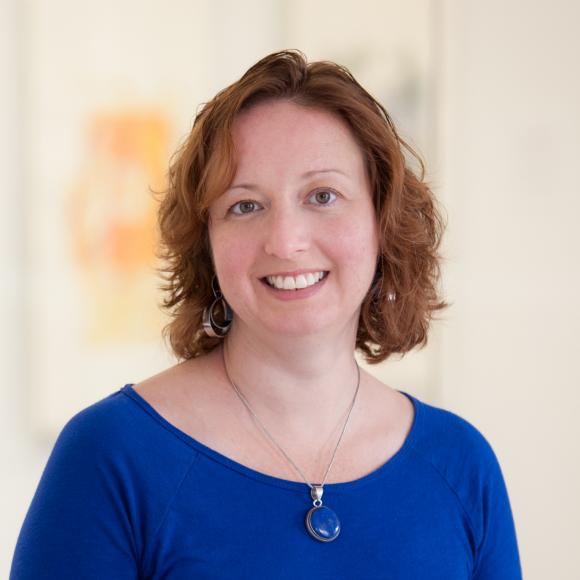 Hastings, who is Deputy Director of IBES and Professor of Earth, Environmental and Planetary Sciences & Environment and Society, was recently featured for this work in the Washington Post.
Hastings, who is Deputy Director of IBES and Professor of Earth, Environmental and Planetary Sciences & Environment and Society, was recently featured for this work in the Washington Post.
Early in her career, as a researcher at the NOAA Geophysical Fluid Dynamics Lab, Hastings observed a lack of women scientists, saying “there were female staff, but there really wasn't anybody who I could look up to or who looked like me”.
Determined, Hastings attended meetings and formed friendships with the few female scientists she met, connecting with more women over time. In 2002, while completing her Ph.D. at Princeton University, Hastings formalized these friendships by co-founding the Earth Science Women’s Network (ESWN). Although it initially began as a nonprofit centered around community building and mentorship, ESWN quickly grew to also organize professional development activities to help women succeed in scientific careers.
Working with her colleagues at ESWN, including Erika Marin-Spiotta from the University of Wisconsin Madison, Hastings shifted focus to discussing barriers to women succeeding in STEM. As professors and scientists, they wanted to develop new training that accurately addressed harassment and exclusionary behavior.
“It really started to be talked about more,” Hastings recalls, noting “the way that we treat people needs to also be as important as we treat data.”
Through a grant from the National Science Foundation, they founded ADVANCEGeo, a program to improve the work environment in the sciences through offering training on bystander intervention and research ethics in partnership with professional societies.
“You can you identify sexual harassment if you are given the textbook example, but in reality, so much of these things are gray,” Hastings explains, “We would come up with scenarios that were more relevant, like the things that we really saw happening in our fields”.
As a co-Principal Investigator for the grant, Hastings travels across the country to run these workshops at conferences, completing seventy so far. Each workshop introduces the problem of harassment, before training participants on bystander intervention based on strategies developed by Hollaback.
This year will be the final year of Hasting’s grant from NSF, but already she is observing new shifts in focus. In particular, they have expanded focus to talk about diversity and exclusion in addition to sexual harassment, since they have found these issues often go hand-in-hand. Now, their broader goal is to educate individuals to combat both exclusionary and sexist behaviors from the ground up, instead of standing on the sidelines.
“If everyone is not tolerant of racist, sexist, and misogynistic behaviors, then they won't be part of our culture,” Hastings says, “So we’re really making clear that those behaviors, and creating any type of hostile climate for anyone, is not appropriate.”
Already, Hastings has seen how her field has visibly changed, noting there are far more women now than there ever were when she was a graduate student. From talking to and learning from other women role models, Hastings has developed different strategies that have helped her succeed as a woman in the sciences. Moreover, her experiences have allowed her to contribute to the Brown community as a mentor, helping the next generation of women scientists.
Reflecting upon her role, Hasting says “Having knowledge, interest, and capacity in diversity, institutional responsibility, ethics and exclusionary behaviors, and bringing all of that to the table I think just makes me who I am today.”